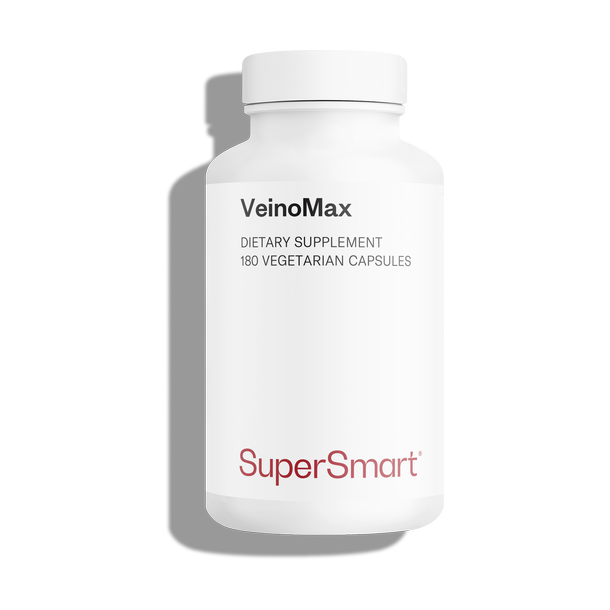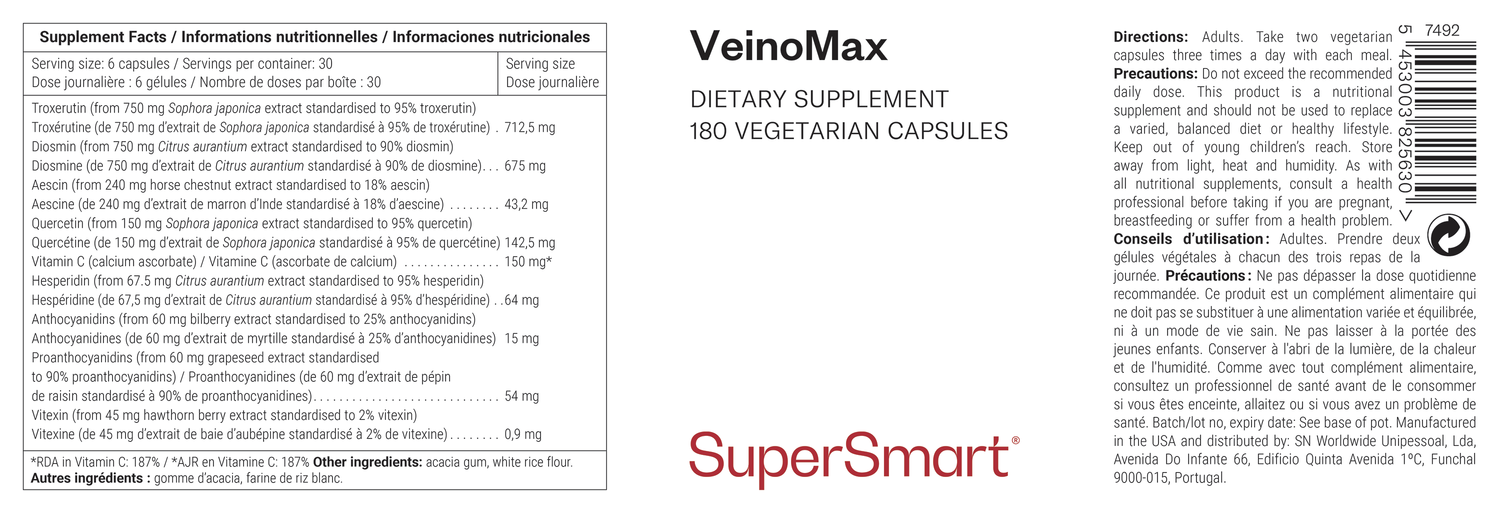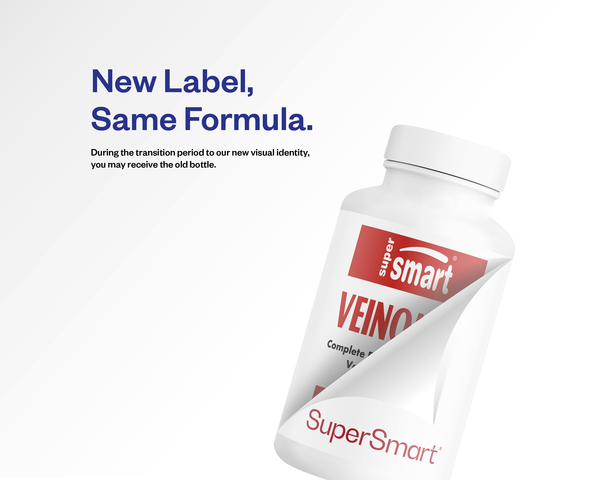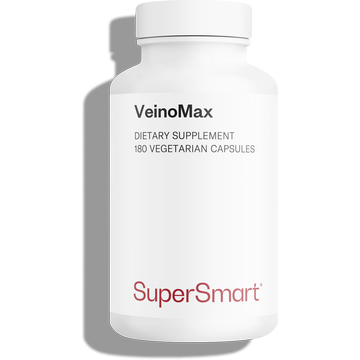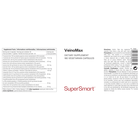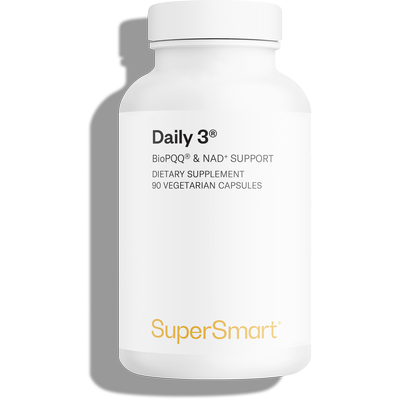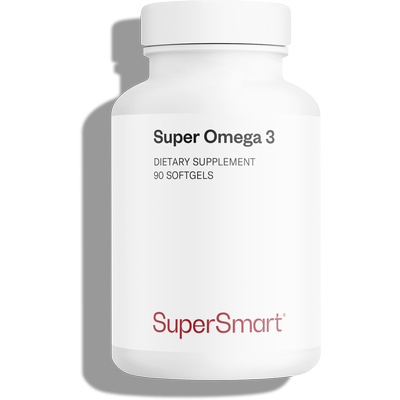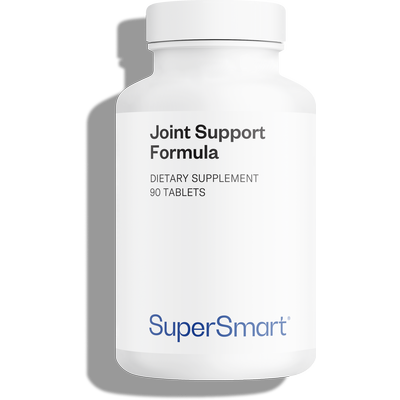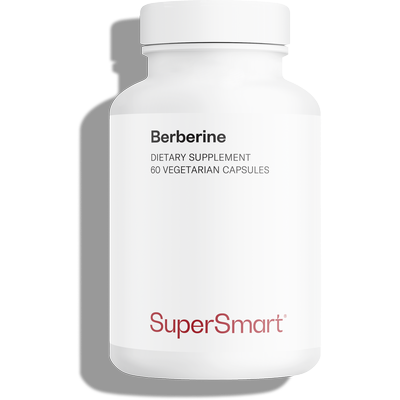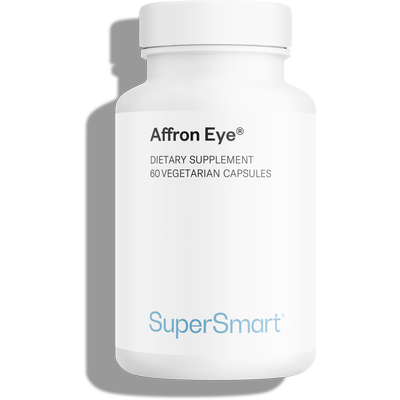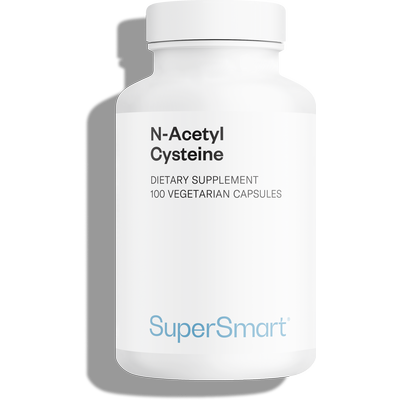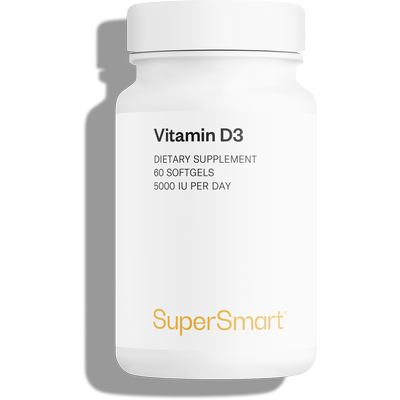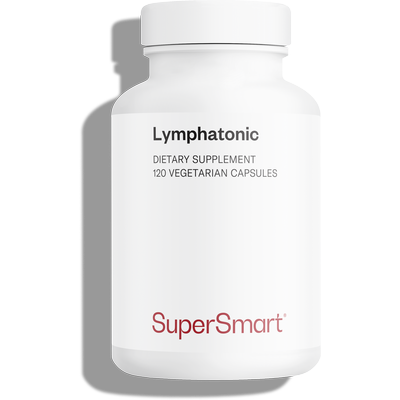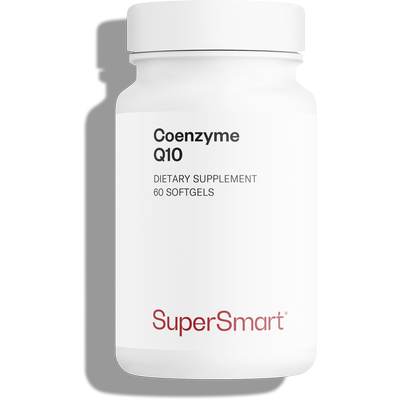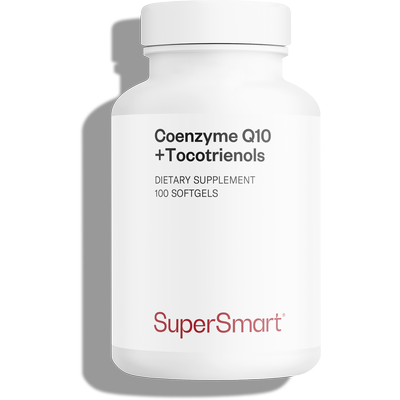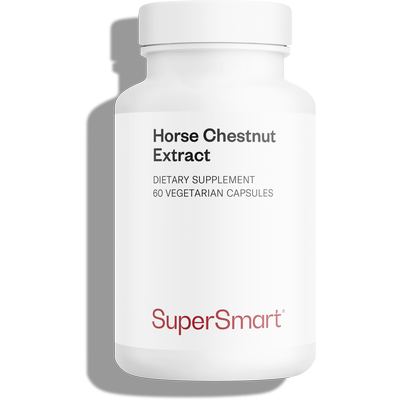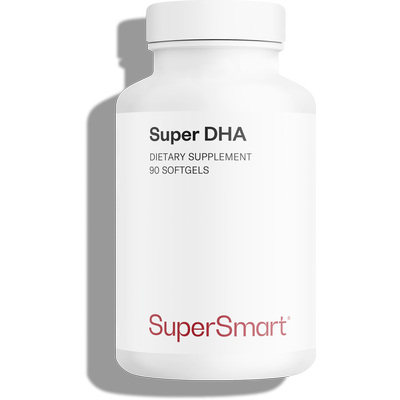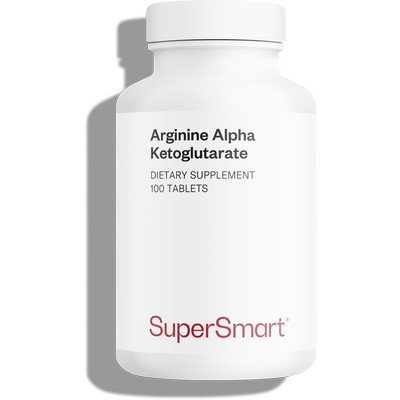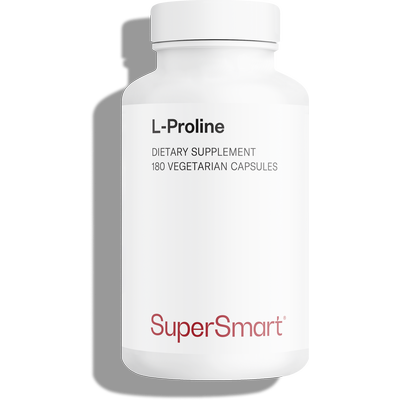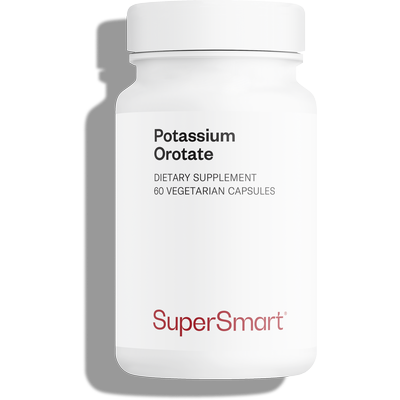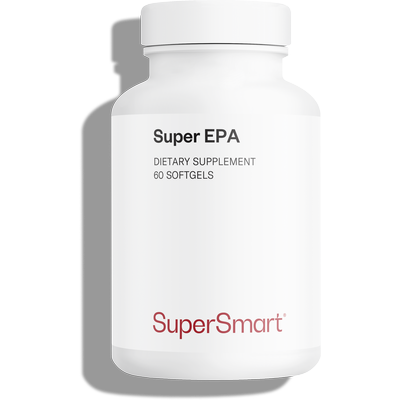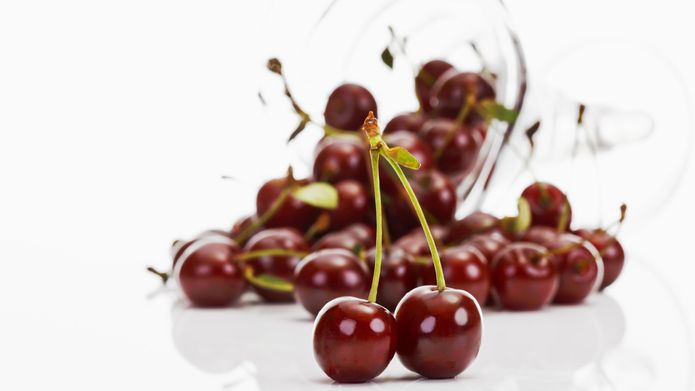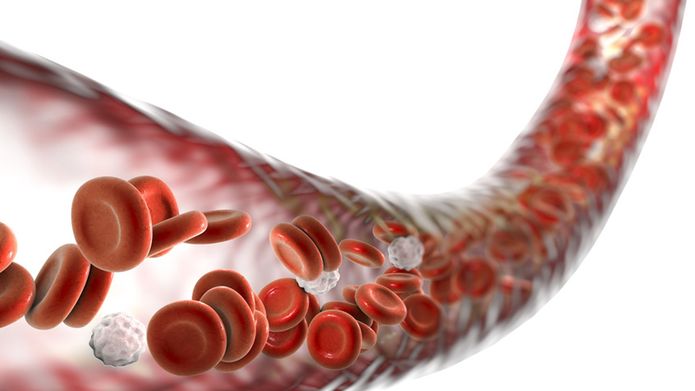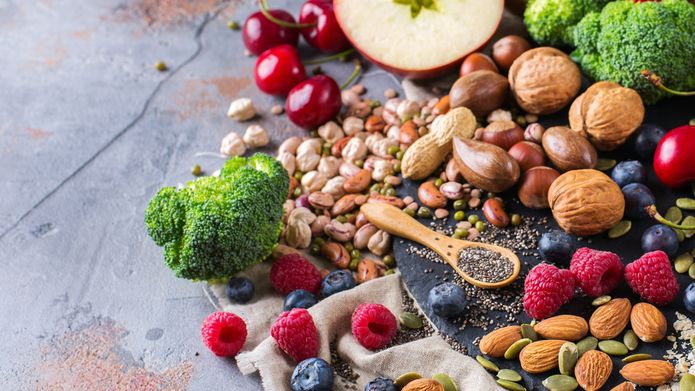Complete your selection
VeinoMax is the gold-standard dietary supplement for supporting the circulation. Its natural venotonic extracts (hawthorn berries, bilberries, horse chestnut, grape seeds …) and exceptional phytonutrients targeted at vein health provide consistent support for the most common circulation problems, such as varicose veins and venous insufficiency.
What is in VeinoMax?
VeinoMax offers an unprecedented synergy of active principles from plant extracts aimed at combatting leg discomfort :
- troxerutin and quercetin, both of which are obtained from the Japanese pagoda tree (Sophora japonica). One of the 50 fundamental plants of Chinese medicine, this ornamental tree bears flower buds which can “eliminate heat from the blood”, according to the Chinese Pharmacopoeia. Given their specific affinity with the outer vein wall and vascular endothelium, its two precious flavonols are among the most widely-studied substances in phlebology (1-2) ;
- hesperidin and diosmin, two flavonoids extracted from bitter orange (Citrus aurantium). Several studies have investigated how these vasoprotective compounds interact with capillary permeability, the underlying inflammatory component and stimulation of blood flow (3-4) ;
- extract of horse chestnut (Aesculus hippocastanum), a natural phlebotonic which helps support vein health and circulation via the specific action of aescin on venous tone and capillary strength. Many scientific articles have noted a subjective improvement in perceived discomfort associated with chronic venous insufficiency (pain, heaviness, swelling …) (5) ;
- extract of blueberry. Rich in anthocyanidins, this dark berry with antioxidant properties helps maintain healthy veins and capillaries by, in particular, acting on the vasomotion of small calibre vessels (6) ;
- extract of grape seed. Through its proanthocyanidin content, it supports vein health by improving the fragility of vascular walls (7) ;
- extract of hawthorn berry, which helps maintain good cardiovascular health. This cardiotonic plant supports the heart’s contractile function and dilation of coronary blood vessels, thereby improving blood supply to the heart muscle (8). It thus exerts a particularly beneficial complementary action in cases of poor venous return;
- vitamin C, which supports normal collagen production and blood vessel function (9).
What are the symptoms of venous insufficiency?
Venous insufficiency is the result of poor venous return. In other words, the blood circulating in the veins of the lower limbs struggles to travel back up to the heart and instead pools in the legs, a problem known as ‘stasis’.
This common complaint, thought to affect 15%-20% of the adult population, is usually caused by both a lack of tone in the vein wall and valve dysfunction in which the small valves meant to ensure blood flows upwards against gravity, do not work properly (10).
It produces various symptoms:
- a feeling of heavy legs, more pronounced at the end of the day;
- restlessness or tingling in the legs;
- muscle cramps in the night;
- swelling of the legs (oedema), especially the calves, ankles or feet;
- formation of varicose veins or spider veins ;
- formation of varicose ulcers (in the case of advanced chronic venous insufficiency).
What is in it VeinoMax
Any questions?
Left untreated, venous insufficiency tends to get worse insidiously. Venous stasis has the effect of maintaining dilation of the blood vessels and weakening the valves, further exacerbating venous return.
In the long term, more severe complications can occur, with, in particular, a higher risk of thrombosis (blockage of a vein by a blood clot). In the most serious cases, it can lead to a potentially life-threatening pulmonary embolism (when the clot travels to a pulmonary artery).
Though venous insufficiency can be caused by many factors, there are certain steps you can take to help restore the feeling of light legs and prevent varicose veins :
- practise an endurance sport. As well as strengthening the cardiovascular system, regular exercise improves arterial and venous vasodilation, while boosting blood flow through a muscle pump effect. Speed-walking, swimming and aqua biking are particularly recommended. Impact or resistance sports (such as tennis, rugby and weight-lifting) should be avoided however, as they risk weakening the valves (11) ;
- lose weight if necessary. Obese individuals are more likely to suffer from chronic venous problems as a result of the increased daily pressure on their lower limbs. What’s more, the benefits obtained following a vascular intervention (phlebectomy, sclerotherapy ...) diminish as BMI rises (12) ;
- stop smoking. Smoking precipitates the onset of vascular disease by causing impaired vasomotricity and stiffening of vein and artery walls (13) ;
- don’t remain static for too long. Standing or sitting for long periods promotes pooling of blood in the legs (14). During breaks at work, take a few steps and try not to cross your legs under the desk;
- avoid intense heat. Heat makes blood vessels dilate and aggravates venous stasis. If you suffer from venous insufficiency, avoid the sauna, the hammam and prolonged sun exposure. If you can bear it, end your shower with a trickle of cold water on your legs (14);
- raise your legs. To facilitate venous return and relieve tension in the lower limbs, sleep with your legs slightly elevated (8cm-10cm) ;
In addition to the vascular-protective supplement VeinoMax, you can also try:
- Lymphatonic, a natural formulation based on sweet clover which supports good vein and vascular health;
- Taxifolin, a Scots pine supplement standardised in dihydroquercetin, quercetin’s powerful cousin.
february 21 2024
Efectos muy favorables.
november 10 2023
Enfin un produit qui tient ses promesses
october 16 2023
Produit de grande qualité.
september 28 2023
Je retrouve des jambes plus légère. Plus de sensation de jambe sans repos
august 13 2023
Lo tomo para las varices y dolor de los pies.. ambos van mejorando mucho y estoy en la mitad del tratamiento!
Need help?
You may also like

